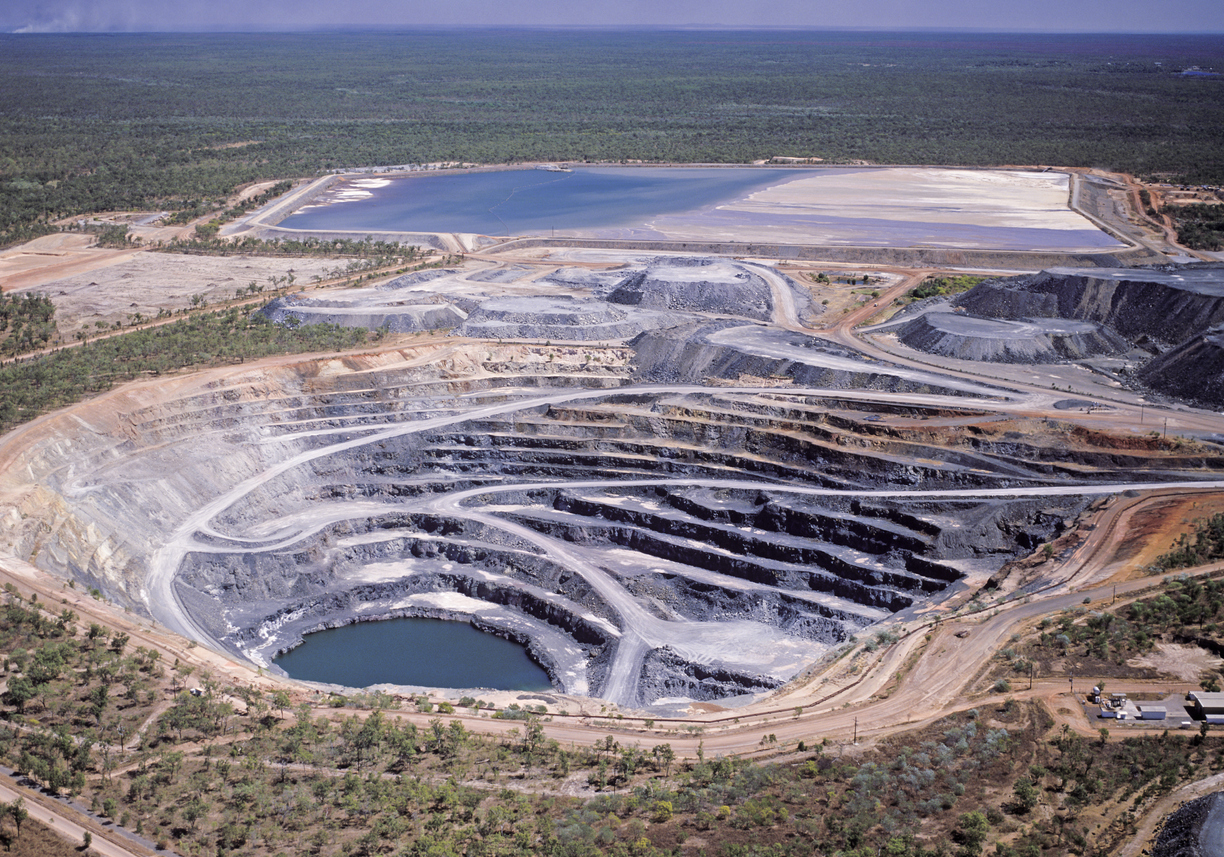
November 2020 marked an inflection point for uranium stocks, which have been rising ever since. The two leading US-listed uranium miners are both up about 150% over the past three months. Even smaller miners like Western Uranium & Vanadium Corp. (CSE: WUC)(OTCQX:WSTRF) and Fission Uranium Corp. (TSX: FCU)(OTCQX: FCUUF) have seen gains of around 70% over the past 3 months.
The trend for some of the uranium miners mentioned above is difficult to explain at the levels we are seeing. Uranium prices have picked up since about mid-March, but not enough to justify the more than 150% we have seen for some of these stocks.
Shifting Tides and Opinions
Much of the talk in the past around uranium has been lukewarm at best. The world backed off of nuclear power after a few accidents caused disasters in Japan, Russia, and a few more regions. The public perception of nuclear power was that of a dangerous and violent power, because of the shocking images those reactor explosions produced. The risk seemed high even though they were rare events. The reason was the impact. The probability is low, but the stakes are so high. Our radar was pinging off the charts because of the kind of destruction those accidents caused.
However, for the coming change in renewable energy, we will need to wean ourselves off of the fossil fuels that have powered the world for the past few hundred years. As we advance, it will be imperative for countries and companies to rally behind the transition to green energy. One of the tools we can use to get there is uranium for nuclear power generation. Currently, nuclear reactors could feasibly replace much of the US power grid if done correctly. While the public relations nightmare of an accident could cost us any progress, the technology is modernized and safer, and the risk of an accident much lower.
For nuclear power to be an appropriate aid in a rapid transition to green energy, uranium will be needed in much larger quantities. Mining will need to begin and expand in domestic markets to keep steep prices at bay. According to Jack Lifton, host of The Technology Metals Show, “The USA imports 95% of the uranium it needs to operate its 25% of the worlds civilian nuclear reactors that provide almost 30% of American baseload (available at any time) electricity needs and accounts for more than half of all carbon-free power generation in the USA. It’s imperative, therefore, that America produces uranium domestically for its security of supply of carbon-free electric power. The US Congress has recognized this need and recently funded a program to buy domestic uranium.”
A Budding Bull Market Begins
Industry insiders and mining company executives agree that a bull market is building, and the forward guidance for spot uranium prices and mining companies extracting the material is upward, to say the least.
At least part of uranium’s pickup has been due to the Biden victory. The US President set a target of 100% carbon-free electricity by 2035, an ambitious one. Part of his strategy will likely include subsidies and investment in companies that can help reach that goal; this includes companies in the nuclear power space. Markets believe and are beginning to price in the fact that Biden will probably need to support nuclear energy as a way of reaching that target in just fourteen years.
The lack of domestic production and plans has also meant supply issues. As demand continues to rise and supply constricts, prices have risen to match the situation. This is primarily a domestic issue, as the Uranium Committee of the Energy Minerals Division of the American Association of Petroleum Geologists commented in their released 2020 Annual Report that prices and supplies of uranium worldwide look good. There is no shortage of uranium in the market around the world, but without domestic production, many countries will be caught out buying abroad for higher prices. It is essential that governments continue to expand their uranium plans and ensure that miners have the resources and clearance to expand their uranium production now.
Risks of Underdeveloped Domestic Uranium Production

After the pandemic exposed some of the flimsiness of global supply chains, the realisation that the rare metals supply issues need to be addressed now. Metals like lithium, cobalt, vanadium, and neodymium are often not produced in the US but imported from other countries like China. Being dependent on other countries isn’t just a logistical issue when governments can’t get stocks to fill demand, but potentially a national security risk.
When countries control the supply of a resource, it can become a bargaining tool. Monopolies or strong control of a market means a company or country can often dictate prices, particularly when demand begins to rise.
Painting a Rosier Picture
Positive strength and a turning tide in the public perception of nuclear power have benefited the United States, and the country is the world’s largest producer of nuclear power. Of the total share of global nuclear generation for electricity, the US accounts for more than 30%. It seems that uranium supply isn’t the crisis we are likely to deal with in the nuclear industry. Right now, the main problems are a lack of a large domestic market for new reactors and the costs of keeping the plants that are operating now at profitable levels.
Globally, the picture is rosier, with the most recently released World Nuclear Association’s Fuel Report noting that “…there are 53 new reactors under construction, more than 100 reactors in the planning stage, and another 320 in the proposal stage.” Production has fallen, though, with only 123 million lbs. produced last year, according to UxC, a nuclear-fuel data and research company.
Expanding projects and starting new ones will be essential to meeting the domestic demand in North American in the coming years as the electrification of the economy accelerates. Right now, efforts are not hitting the mark. A 33 million lb. uranium is forecast for 2021 by BMO Capital Markets, representing 18% of current demand. That gap needs to be filled, but there also needs to be a surplus goal to keep prices under control.
Three Top Uranium Miners
For the miners extracting and producing uranium, this is a golden moment. They have a confluence of events and plans that are lining up for their benefit and putting them in a position to profit for decades. Even when the transition is mostly complete, there will be an ongoing need for uranium for energy production. Here are the three companies poised to win in this clean energy game:
1. Cameco (NYSE:CCJ)
As the world’s largest publicly traded uranium company, Cameco is uniquely positioned to expand its control over the market. First-mover advantage and size means that its footprint in Kazakhstan, Canada, and the US will only grow. The company holds 455 million pounds of proven and probable mineral reserves, with a licensed capacity to produce upwards of 53 million pounds of uranium concentrates. As demand increases, Cameco (NYSE:CCJ) will be one of the biggest winners.
2. Ur-Energy (NYSE:URG)
Ur-Energy is a junior miner, and as such, has a lot of room to grow. The company’s latest project, Shirley Basin, was acquired in 2013. As progress continues on assessments and planning, up to 6.3 million pounds of U3O8, a uranium compound, might be produced by this up-and-comer. Its main Lost Creek uranium facility in Wyoming has a capacity of two million pounds per year, limited by physical design. This may be a good value play if the company can scale up in preparation for the demand increases for uranium around the world.
3. Uranium Energy Corp. (NYSE:UEC)
With a wide footprint and reach, Uranium Energy Corp. has projects in Wyoming, Texas, New Mexico, Paraguay, Colorado, Arizona, and Canada. The benefit of this diversification is that the company can more easily avoid geopolitical risks over the long term while setting itself up for success no matter where it operates. By spreading risks around to different regions, this company may be more stable than many of the junior uranium mining companies out there. Its other unique quality may be that it is entirely unhedged. The company holds zero contracts at pre-set prices and is massively leveraged to uranium’s price as a result. Compared to most other uranium mining companies, Uranium Energy Corp. is more likely to be able to take advantage of a rising price for spot uranium if supply is not expanded quickly.
The Future
Nuclear energy is still a tiny portion of energy production in the US. In recent years, it reached up to 20% of total energy production. Compared to countries like France that use nuclear energy for about 70% of total energy production, this is a pretty low number. There is plenty of room to grow for the industry. More nuclear projects continue to be approved, and governments are realising that nuclear energy is a better, cleaner option for the transition to renewables. It is a powerful, dense energy that could ease the way from fossil fuels to solar and wind energy.
Uranium stocks will be an attractive option for investors looking for a middle ground and something to gain exposure to this transition and the lofty decarbonisation goals set by the US government, as well as other developed economies around the world.
The above references an opinion and is for information purposes only. It is not intended to be investment advice. Seek a licensed professional for investment advice. The author is not an insider or shareholder of any of the companies mentioned above.
If you would like to receive our free newsletter via email, simply enter your email address below & click subscribe.
CONNECT WITH US
Tweets
Tweet with hash tag #miningfeeds or @miningfeeds and your tweets will be displayed across this site.
MOST ACTIVE MINING STOCKS
Daily Gainers
 New Age Exploration Limited New Age Exploration Limited |
NAE.AX | +33.33% |
        |
CASA.V | +30.00% |
    |
VKA.AX | +28.57% |
    |
CTO.AX | +25.00% |
        |
BSX.TO | +22.22% |
        |
ANK.V | +21.74% |
        |
SRI.V | +20.00% |
        |
NEV.V | +20.00% |
        |
IB.V | +18.18% |
        |
SLL.V | +16.42% |

 Follow us on Twitter
Follow us on Twitter Become our facebook fan
Become our facebook fan







